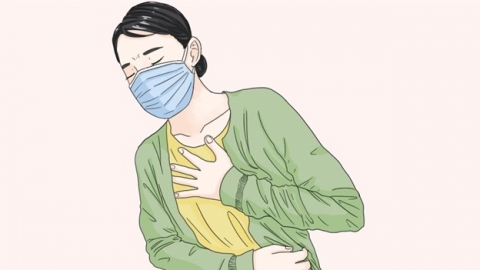Treatment Plan for Mycoplasma Pneumonia
Generally, mycoplasma pneumonia may be related to factors such as poor environmental conditions, low immunity, direct contact, indirect contact, and mother-to-child transmission. It is recommended to improve the living environment, enhance immunity, avoid close contact, refrain from sharing personal items, and take proper precautions during pregnancy. The detailed analysis is as follows:

1. Poor Environment
Living long-term in an environment with poor air circulation and severe pollution increases the likelihood of mycoplasma pneumonia infection. Cold and humid conditions are conducive to the survival and spread of mycoplasma pneumonia. During autumn and winter when temperatures are lower and humidity is higher, mycoplasma pneumonia is more likely to occur. It is important to improve the living environment promptly, maintain indoor air circulation, and regularly open windows for ventilation to reduce the concentration of bacteria, viruses, and other microorganisms in the air.
2. Low Immunity
When the body's immunity is reduced, the ability to defend against pathogens weakens, thereby increasing the risk of mycoplasma pneumonia infection. Patients should engage in moderate physical exercise, such as walking, jogging, and yoga, to improve their physical fitness and immunity.
3. Direct Contact
Mycoplasma pneumonia patients can release pathogens into the air through coughing, sneezing, and other actions, leading to droplet transmission. Healthy individuals who have close contact with infected individuals, such as shaking hands or hugging, may easily inhale these droplets containing pathogens and become infected with mycoplasma pneumonia. Try to avoid direct contact with patients with mycoplasma pneumonia, especially when they are coughing or sneezing.
4. Indirect Contact
Contact with items previously used by a patient with mycoplasma pneumonia, such as towels, tableware, clothing, and bedding, may also lead to indirect transmission. These surfaces may have residual mycoplasma, and if healthy individuals touch them and then touch their mouths, noses, or faces without timely hand cleaning, they may become infected. Avoid sharing personal items such as towels, tableware, and cups with patients suffering from mycoplasma pneumonia.
5. Mother-to-Child Transmission
If a pregnant woman contracts mycoplasma pneumonia during pregnancy, the pathogen may infect the fetus through the placenta, causing intrauterine infection or illness after birth. Pregnant women should strengthen personal protection during pregnancy to avoid contracting mycoplasma pneumonia.
If mycoplasma pneumonia has already occurred, it is necessary to follow medical advice promptly and use medications such as clarithromycin tablets, roxithromycin capsules, and azithromycin for injection. When going out, patients should wear medical masks and gloves to reduce the spread of pathogens.






